Atul Singh: Welcome to FO° Talks. With me is Gary Grappo. He’s the former chair of Fair Observer. He has been an ambassador for the US. He has had a glorious diplomatic career spanning many decades in many countries. He speaks many languages, and few people have a more nuanced view on geopolitics than Gary. And so without further ado, Gary and I are going to dive into the new geopolitical landscape of the Middle East. Gary, welcome.
Gary Grappo: Thank you very much, Atul, and for your flattering introduction. And it’s always a pleasure to be with you and to talk about what’s happening in the world as we speak. And in today’s interview, we’ll be obviously talking about the Middle East, where the situation remains quite fluid and very dynamic.
Atul Singh: What is this new geopolitical landscape we are talking about? How is it different to the old one? And when does this new era begin?
Gary Grappo: Well, the fundamental problems of the Middle East are unchanged. We have governments that are largely, widely unpopular. We have an extensive amount of oppression, particularly in the Arab countries; we have continuing instability in several of the countries, with militia groups quite active, terrorist organizations quite active; and we still have the ongoing problem, of course, of the Israeli–Palestinian conflict, although the tenor of that has changed considerably as well. But what has changed is the dynamic. Over the course of the last several months, of course, we have seen significant diminishing of the capabilities of Hamas in Gaza. We had a ceasefire that lasted almost two months and is now finished, and Israel has relaunched both its ground and air campaign against Hamas in Gaza. We can get into the details of that and what that may portend. Further to the north, we have a largely decimated Hezbollah. Israel, by dint of cleverness and truly impressive technological innovation and then massive air attacks, was able to eliminate at least the top two, if not top three, levels of the Hezbollah organization in southern Lebanon, while at the same time decimating its arsenal of weapons, although not entirely destroying it. And so it presents much less threat to the people of Israel. At the same time, we finally — after waiting almost two years — we have an actual government in place with a president and a prime minister in Lebanon. The Lebanese people, for the first time, will have a government that appears committed to addressing the real challenges that that country is facing, both on the political front and most especially on the economic front. We can get into what to anticipate as that moves forward. Probably one of the most significant developments has been the fall of the Assad regime. Father and son lasted some 53–54 years and ruled with an iron fist, including over the last ten or 12 years during the Syrian civil war. They saw the complete devastation of the Syrian economy, deaths that ran into the hundreds of thousands, and huge numbers of Syrian refugees fleeing to Jordan, Turkey, even to Europe and Lebanon. It was then replaced with a government which initially showed some positive signs of moving forward, despite its jihadist heritage — actually quite steeped in jihadism. But we’re now seeing what I refer to as a default position in the Middle East. And that is, you see a change in government, hopes and expectations are high, and then cracks begin to appear. In this particular case, we are seeing an increase in the number of Assadists — that is, remnants of pro-Assad forces — attacking Syrian government forces, and those are leading to some actually quite pitched battles and to the exacting of revenge against the Alawite minority in the western and northwestern parts of Syria, with fairly large numbers of fatalities. There were also reports of some Christians being killed as well — not, at least from my perspective, unanticipated at all. And then finally — and we can get into other elements — but the situation in Iran has dramatically changed as a result of two Israeli attacks: in April of last year and then in October. That has greatly diminished the capability of the Iranian regime to protect itself from future attacks, providing Donald Trump with a potential, perhaps, of maybe reaching some kind of a negotiated solution with respect to Iran’s nuclear weapons program. So that’s the lineup. We can talk also, if you’d like, about what’s happening in Yemen right now. There’s certainly been an uptick in the last five days of activity there as well.
Instability in Israel
Atul Singh: So what you’re saying is part of the warp and woof of the Middle East. The Middle East has been unstable. You can argue that after Sykes-Picot, once the Ottoman Empire was replaced by the British and French empires, and after they unraveled and left behind nation-states in largely ethnic and tribal territories, the instability has never ended. What’s new? What’s new about this, Gary? How is it different to what transpired earlier?
Gary Grappo: Well, certainly what is new is the character of the conflict between Israel and some of its neighbors. And when I say that, we have to be cautious, because the states that border Israel don’t necessarily present a threat to Israel at all. Certainly not Egypt, not Jordan, not Lebanon and not even Syria, to be quite frank, although Israel is keeping its powder dry with respect to the future of Syria. But we still have the security threats to the State of Israel emanating from Hamas in Gaza and still from Hezbollah in southern Lebanon. And then the Iranian regime has not changed at all. There is certainly the realization on the part of the leadership, including that of the Revolutionary Guard Corps, that they do not have the defense mechanisms that they thought they once had, with their so-called Axis of Resistance now greatly weakened as a result of conflicts with Israel. But the fundamental lay of the land, so to speak, in terms of the unpopularity of governments, inability of governments to respond to the needs of their peoples — probably, with the exception, obviously, of the monarchies, which do a much better job in that regard and therefore enjoy a measure of legitimacy that other governments do not have — that all remains the same. And the fear that governments have of their populations, that at any moment streets could erupt over whatever the issue du jour happens to be — whether it’s the Israeli–Palestinian issue, whether it’s the economic situation, whether it’s oppressive government security forces, whether it’s the inability to hold the governments accountable to their people — all of those things still register quite prominently among the peoples of the Middle East.
Atul Singh: Alright, so Gary, what you’re painting is a fundamentally unstable situation. Let’s begin with Israel–Palestine, since you mentioned that is an issue that animates the Arab street, and there’s a tension between the Arab street and the Arab palace on that issue. And of course, we can talk about whether Israel has been just or unjust, whether in its response to the terrorist attacks of October 7, whether they’ve been proportionate or disproportionate. But for me, our deeper concern is the inherent instability we see in Israel itself now. We are speaking just after Bibi Netanyahu and his cabinet have fired the head of Shin Bet, the internal intelligence agency of Israel. Now, this sort of politicization of intelligence agencies — and indeed the military — has not happened in Israel. Israel has had a fantastic military, a fantastic intelligence and a really cohesive state until quite recently. And now that internal cohesion in Israel seems to be breaking, and that for me perhaps is even more worrying than the usual fault lines everyone talks about.
Gary Grappo: There’s no question that Israel is facing some rather difficult internal political challenges. The specific one that you mentioned on the firing of the head of Shin Bet is overlaid with the quite emotional upheaval over the situation of Israeli hostages who remain in Gaza. Of course, there are some 59–60 of those. How many of them are still alive? I guess the Israelis perhaps may know, but there are most definitely some of them who are not alive today. And so that’s a fault line.
Atul Singh: Sorry to interject, but I think even the Israelis cannot know for sure, because as of now, we know that they have not quite managed to break Hamas completely. They’ve done a lot of damage, but Hamas has proved more resilient than anyone could have estimated given the disparity in force.
Gary Grappo: Yes. No, Hamas is, despite the devastating losses they’ve suffered in manpower and in weapons and in overall structural cohesiveness of the organization, they’re still standing. And we saw that during the ceasefire, when they made a show of their continued presence in the territory. And Israel knows that, and I think that’s why Israel finally decided that since the ceasefire was obviously not going to move into a phase two — I will just say quite bluntly — there was never any possibility of that happening. It looked good on paper — the phase one, the phase two and the phase three. There was never any chance of moving into phase two. There really wasn’t. And so Hamas still exists as an organization. They are attempting to rearm. It’s going to be difficult because their supply lines have suffered rather dramatic deterioration. They can’t get the supplies in they previously had received, for example, say, from Hezbollah in southern Lebanon or from Iran. So they’re going to be hard-pressed to replace their stockpile of weapons and other material. But they are recruiting quite strongly, as a matter of fact. And I think we have to acknowledge the fact that it’s pretty fertile territory for the recruitment of fighters, given what has transpired since October 7. So their strength is probably back up to at least 20,000 fighters — not nearly with the capabilities that they might have had post-October 7. They’ve lost those veteran fighters — many, many of them. But they’ll get there. And I think that’s why Israel decided to capitalize while it could, in going after this still-less-than-previously-very-capable Hamas fighting force. But to get back to Israel, the issue over the firing of the Shin Bet chief is overlaid with the dissension in the Israeli public over the state of the hostages and whether the government is doing enough or not to secure their release. And then underpinning all of that, if you recall, before October 7, there was quite a bit of attention devoted to what Bibi was trying to do to undermine the authority of the Israeli judiciary, and that still remains so. So we do see a lot of political cracks within Israel internally. And I’ll make the final point — and I know Bibi Netanyahu is very mindful of this — and that is: Israel must decide on its state budget by the end of this month. If they finish the month without a state budget, it effectively means the collapse of the government. They will have to call for new elections, which would take — in Israel, given its election laws — three months. So all of this internal churn is having an impact. And then, of course, there’s all the back and forth over the person Bibi Netanyahu himself and how Israelis view him, how much or not it can be debated. Netanyahu needs war to maintain his position as prime minister. All of that is being debated today in Israel. So yeah, Israel faces its problems within itself, in addition to the external threats.
Lebanon’s prospects
Atul Singh: And so let’s move on from Israel to Lebanon. Lebanon, you mentioned, seems to have greater hope now. But Lebanon still has a fractious, multi-ethnic society, which in the past even struggled to collect rubbish, leave aside deliver other elements of governance. Hezbollah ran a parallel state, which was arguably more powerful than the state itself, at least in the areas it dominated. Is there hope for Lebanon as a state, or are we going to see Lebanon limp along as a failed state?
Gary Grappo: I think there’s more hope today in Lebanon than there has been — most certainly in the last 10 years, maybe in the last 25 years. There genuinely is an opportunity here. Now, Lebanon has been put nearly on its back. Its economy, which was considered a middle-income country at one point, has now been reduced to almost poverty level. Most of the country is living at or below that today. The infrastructure has suffered considerably, particularly the neighborhoods in Beirut and in southern Lebanon and in the Beqaa Valley, which is on the east near the border with Syria. So a lot of work needs to be done on the Lebanese economy. But the Lebanese people are some of the most industrious — in fact, I would argue the most industrious people in the Middle East after Israel. And there can be a natural affinity between Lebanon and Israel in terms of how they approach innovation, how they approach business, how they approach development, if they can overcome some of these problems. Now, this is where Lebanon is going to need some help. And I would argue, if I were sitting before Donald Trump, that if you really want to do some good not only for the people of Lebanon and for our interest in Lebanon, but also for Israel, we need to invest in Lebanon. We need to invest in their armed forces. We need to work with the armed forces as closely as we can to ensure they are able to disarm Hezbollah, which is not going to willingly lay down all of its arms. It’s obliged to do that going back to a UN Security Council resolution following the 2006 war. And the terms of the latest ceasefire called for the enforcement of that, as well as the withdrawal of all Lebanese armed forces north of the Litani River, which is around 20 miles north of the Israeli border. And Lebanon is supposed to — the Lebanese armed forces are supposed to have that responsibility and that authority. It’s uncertain how effectively they can carry that out. They are going to need some help — in fact, considerable help. And this is where I think the West, particularly the United States — I would also argue France and other countries — could help Lebanon. One of the good things is they were finally able to name a president, and they have a prime minister, both of whom are opposed to Hezbollah. They want to see the ceasefire terms fully enforced. They have taken on that responsibility. It’s just the ability to do that is a bit constrained at the moment. And then finally, I will say that Hezbollah is greatly weakened within Lebanon today. They do not have anywhere near the political stature they once had. Even though they still maintain a sizable presence — not a majority, but a sizable presence — in the Lebanese parliament. There are going to be elections for the parliament, I want to say, in two years. And the hope is that if Lebanon can show some genuine progress, that the Hezbollah presence in the parliament can be even further reduced. Just as an indication, we’re seeing that the level of popularity of Hezbollah, even among Lebanese Shia, is reduced from what it has historically been. So these are important points to consider and offer a genuine opportunity for hope and progress in Lebanon. And we should take stock of that and try to capitalize on that in the interest of Lebanon and overall stability in the Middle East.
Atul Singh: Donald Trump has, I believe, two daughters — or three, probably two, if I remember correctly — and one of them is married to a Lebanese gentleman, and her father-in-law is apparently now mediating. He’s Maronite, and hopefully, if he’s involved, do you think there will be US investment and attention to Lebanon?
Gary Grappo: If he has the ear of Donald Trump, then there is a possibility. Now, I haven’t heard much about what he’s actually doing at the moment in Lebanon. He’s been given some other responsibilities, too, so I don’t know how he’s dividing his time and efforts. Nevertheless, yeah, if you have the ear of Donald Trump, obviously you’re going to be an influential person, and you’re going to be viewed as someone with influence and people will pay attention to you. We haven’t yet seen his influence demonstrated clearly in terms of his relationship with the president vis-à-vis the president’s daughter. You would think he would. So that remains to be seen.
Rising pressure in Jordan
Atul Singh: Moving on from Lebanon to Jordan, we know that the monarchy feels the heat. The King of Jordan has not been terribly enthused about Donald Trump’s plan for Gaza, turning it into a riviera. We know that the majority of Jordan is now Palestinian. We know that Palestinians in Jordan are increasingly in solidarity with Palestinians in the West Bank and Gaza. So from a geopolitical point of view, it seems that Jordan seems to be quite unstable. The king is not getting any younger either. So what lies ahead there?
Gary Grappo: There hasn’t been much attention given to Jordan, and that’s unfortunate, because Jordan is facing some challenges. There is this very restive Palestinian population within Jordan. Estimates vary — anywhere between 60 and 80% of the population of the country. It seems to be in a perpetual economic crisis. They don’t have the natural resource wealth that other countries in the region have, and they are dependent to a great extent on American largesse. The American aid program, if it continues, is quite substantial, and the king needs that, which is why the king — after Donald Trump’s statement about his ambitions for Gaza — was anxious to fly to Washington and meet with the president in order to maybe talk him down from this grandiose plan for Gaza. But he was quite diplomatic about it. It was not confrontational, but also made it clear that this was not something that Jordan would be able to accept. But he knows how to be deferential when he has to be to the United States — and specifically to Donald Trump, who likes that. And so he ended up leaving, having made his point, but not losing Jordan’s status in terms of how it’s viewed in Washington. But it faces continuing economic challenges, which are quite dire — whether it’s unemployment, whether it’s the level of business activity, economic growth, development and so forth. The other problem that many folks have not focused on is the security challenges that Jordan faces, coming not only from the West Bank, where you have the appearance now of these small militia groups that are causing a great deal of instability in the West Bank — confronting settlers, confronting the IDF. There’s some of that also present in Jordan. The Jordanian security forces are quite competent.
Atul Singh: [Are these groups directly tied to Hamas? Or are they more independent, acting on their own?]
Gary Grappo: Both. Some will have some kind of tie to Hamas but don’t take guidance from Hamas. Others may take some guidance from Hamas, and some are entirely independent and are operating on their own. In fact, it’s uncertain the extent to which some of them actually even coordinate their activities with one another, which is why they haven’t been all that effective. And the Israelis have been able to tamp them down as they appear but not eliminate them. The suspicion is that the Iranians may be behind some of this in terms of provoking them, maybe providing them with funds, even weapons that are smuggled in via Syria and Jordan. So it’s all kind of opaque at this point, but it presents problems for Jordan. And there are some interesting reports coming out of Iran that the Iranians view Jordan as a particularly weak point, and that if their efforts to re-establish a link between Iran and Hezbollah through Syria — and that’s not working out so well up to this point — that they may attempt to use Jordan. Now, they’ll find very stiff challenge in Jordan. The Jordanian forces are not to be trifled with. They’re very effective, very capable. They have an excellent intelligence service. They cooperate very closely with both the Americans and the Israelis. So they’ll find the going very tough, but—
Atul Singh: [Did King Abdullah himself serve in the Jordanian Armed Forces or receive military training?]
Gary Grappo: Hm, I want to say he did, but I can’t be sure. I know his father did, but I can’t be sure about Abdullah. But I think so, be that as it—
Atul Singh: [Well, regardless, the king seems to command deep loyalty from the armed forces. That’s a critical pillar of stability in a region where rulers often take great care to ensure military loyalty.]
Gary Grappo: Absolutely. And the king enjoys their loyalty 100%, which is very important in the Middle East. And they are indeed very loyal to the king and will remain so. And so I have every reason to believe that with the continued cooperation with the Americans and the Israelis, that they’ll be able to thwart any effort on the part of the Iranians. But it’s still a challenge that the Jordanians now have to confront. But I am worried about the internal political stability because of the large Palestinian presence there. I don’t think it’ll turn terribly violent, other than maybe potential pockets in some areas. But nevertheless, it’s something I’m sure the king is very much aware of, and the Israeli and American intelligence services are also quite aware of and trying to provide the king with whatever support he may need. So it’s worth keeping an eye on developments in Jordan.
Can the country of Syria survive?
Atul Singh: Let’s talk about Syria. You’ve already mentioned that it has followed a familiar pattern. And you’ve mentioned the killings of Alawites. You’ve also mentioned the former Assad regime soldiers mounting attacks on the new regime. Of course, we know that Turkish intelligence, MIT, did support the current rulers of Syria. So what happens now with the Kurds, who represent one area and one ethnicity of Syria? The Sunnis — also not just Sunnis who are in the plains in that road going all the way from Damascus to Istanbul, formerly Constantinople — but also the Arabs living by the Tigris and Euphrates. They are different. Those peasants are different to the more urban population. And in fact, arguably, a drought led to their migration to the cities and triggered the Arab uprisings in Syria. And then, of course, we have the issue of the Alawites, who are along the coasts and who were persecuted by the Sunnis under none other than Selim I. And of course, when they ruled, they weren’t particularly kind and loving and peaceful either. So there is a whole cycle of violence there. Can Syria even survive as a country de jure?
Gary Grappo: That may be the ultimate question, and that question has been posed more than once. It’s not coincidence that the centrifugal sectarian forces of Lebanon mirror those almost, in some cases, identically to those in Syria. You have a multiplicity of sectarian groups — whether religious or ethnic — and it makes it very, very difficult to have a unifying identity for Syria, despite efforts by previous regimes to create one. Assad tried to create one, and it ultimately came down to oppression. If you opposed Assad, you ended up either dead or in jail. And that’s how it was enforced. I think al-Sharaa, who is the interim president — we’ll see how long the interim period is — former head of the Hay’at Tahrir al-Sham, the jihadist group that emerged victorious after the fall of Assad, he said all the right things, which new Arab leaders often do, with all these wonderful aspirations of Syrian unity and respect for its multi-identities within the country. But the default position is these groups go at one another, and certainly they go after the government. And you mentioned a few of these. But there are Druze down in the south. There are Ismailis who are closer to being Shia, actually, than the Alawites, who were represented in the person of Assad and his father. You had Turkmen up in the very northern part of the country — the remnants of the Turkish population after the fall of the Ottomans. You have the Kurds up in the northeast. And you mentioned a very good point: that the Arabs who typically settle in some of the cities stretching from Damascus in the south to Aleppo in the north have a very different perspective on things than the desert Arabs who live to the east. And also their views on Islam — Sunni Islam. They’re all Sunni, but how they view it, how strongly they adhere to it, where they tend to be more conservative or not, all of that. There are many complexions. And even in the western areas on that main highway that goes from Damascus to Hama, Homs and Aleppo, from city to city, it changes. And those are four very big cities in Syria. That all changes. You have several Christian groups that inhabit the country. And so all of these are pulling at one another. All of these are vying for influence, power, and wealth in a country which — we have to remember — has been destroyed. 80% of its economy has been effectively destroyed as a result of that 12-year civil war. And then you have another six million or so Syrians residing outside the country, who are forming actually a new identity of themselves and of Syria, whether they reside in Jordan or Turkey or Lebanon, or even in Europe. So all of these are pushing and pulling against one another, presenting enormous challenges to the government and the government’s ability to actually govern. And the default position — and that’s kind of a situation where you have the sectarian strains pulling at one another — the government brings down the hammer. That’s what Assad did. And that’s what the predecessors of the Assads did. Although they have had brief experiences with democracy, they didn’t last. They didn’t last.
Atul Singh: [So even when Syria flirted with democracy, it couldn’t overcome those deep sectarian divisions, could it?]
Gary Grappo: Yes, they even tried that! But that’s another point, because let’s bear in mind there are external players in all of that mix. This is not just Syria alone. There’s Lebanon, of course, to the west. There’s Turkey, which is probably the most significant influence today to the north. Iran has not given up on Syria and will try to re-establish its pipeline of weapons of war material and money into Hezbollah in southern Lebanon. There are folks who were greatly affected by the fall of the Assad regime and the collapse of the huge Captagon industry that was resident in Syria. Basically, that’s how the Syrian regime made money. They sell Captagon — which is the Middle Eastern equivalent almost of meth — and were making billions. And that’s how the army earned whatever funds it could to support itself. It wasn’t nearly enough, and obviously collapsed very easily. And there are others in the mix. The Iraqis are watching very, very closely what happens. This may present some opportunities for the western Arabs of Iraq to influence Syria as well. And then you have the Americans, the Europeans and the Israelis exerting their influence. The Israelis, by the way, have moved beyond the neutral territory between their borders and have now settled on — I’m talking about military forces — on actual Syrian territory. And they’re going to wait and see how things play out to ensure that whatever result does not present a threat to Israel. And so they have that new buffer zone that they have established.
Atul Singh: Yes, some of the Israelis say that there’s no way they can give it up. And they say that the Druze actually in Syria want Israeli protection. And the Druze are a great buffer zone against a potential fundamentalist Sunni regime in Damascus.
Gary Grappo: That’s 100% correct. Of course, there is a significant, relatively speaking, Druze population in Israel, which does quite well. They do not experience many of the problems that the Israeli Arabs have in Israel, and they’re quite pleased, for the most part, with their status in Israel. And of course, they have their contacts with their brothers in Syria. And it’s a natural affinity that the Druze would have toward Israel. They’re far more trusting of Israel than this new government. And they’re trying to figure it out. They’re trying to feel their way through this new government. They’re not sure exactly how much authority, how much power they will be given. And so it’s not surprising that they’re maintaining pretty close ties with Israel and will find a way to cooperate with Israel if they feel that their interests may be threatened by this new government in Damascus.
Atul Singh: Alright, you haven’t mentioned the Russians. They have Latakia and they have Tartus still, and I’m sure they are not going to disappear quietly into the sun.
Gary Grappo: You’re right. And they don’t have quite the presence they had before the fall of the Assad regime. There are supposedly ongoing negotiations to maintain both their air base at Hmeimim and their naval base at Tartus. The naval base in particular is vitally important for the Russians, and they desperately want to hold on to that. They’ve lost all other influence in Syria today, not only because of the fall of Assad, but of course having to overextend itself in Ukraine, in that misbegotten war. And so they’re struggling. And it’s not clear that the government may necessarily want them, particularly given the close relationship between Russia today and Iran. One thing you can say about the regime in Damascus now is they don’t want the Iranians back. They most definitely don’t want Hezbollah back. And we’re already seeing fighting take place between the government forces of Syria and Hezbollah, which is a very interesting development — and from the purely selfish perspective of the Americans and Israelis — not bad at all. Now, Hezbollah is probably also allying with these pro-Assad factions in the western part of the country, which is something to be watched. And again, Atul, I just come back to all the centrifugal forces at play in Syria, which argue against, unfortunately, the best hopes of the Syrian people after the regime fell.
Egypt: the ticking time bomb
Atul Singh: Alright, let’s move on from Syria, and let’s talk about Egypt, the other neighbor of Israel. One ex-MI6 officer told me that he believes that Egypt could be the ticking time bomb in the region because of its population, because of the salinization of the Nile Delta, and because of persistent youth unemployment and resentment against the regime. He also said that as of now, Sisi is a pretty effective ruler. The military has managed to clamp down pretty hard on the Muslim Brotherhood. And as of now, there is no immediate risk. But the structural problems persist in the economy, and the political problem exists in society, and there is such democratic deficit and a demographic time bomb that Egypt will ultimately implode. What do you say to that, Gary?
Gary Grappo: Egypt is a perfect illustration of the essential problem of the Middle East that I outlined at the outset. And that is the fact that you have unpopular governments, unaccountable to their people and fearful of their people, and maintaining authority through their security forces — essentially oppression — while at the same time the economic and social needs are not being met adequately. And there’s no recourse. And in the case of Egypt, you have very effective internal security forces. They have almost eradicated the Muslim Brotherhood from Egypt — ruthlessly, too. And they packed up and left while they could. And those who couldn’t ended up either dead or in jail. And there are a number of jails that are chock-a-block full of former Muslim Brotherhood members. So for the time being, as you mentioned, the problem is contained. But the challenge remains: how do you reconcile a country — it’s the largest population by far in the Middle East — that is unable at the present time to meet the needs of those people? Education, health care, employment and so forth. The government was able to attract money to build this mammoth new capital, which by all accounts is quite impressive, outside of Cairo. Most people cannot afford to live there, only probably the top 10–15%. Even some Egyptians who work there in the government can’t afford to live there. And so that’s presenting problems for the people of Cairo especially, which is the largest city by far in Egypt, if not in the entire Middle East. And then the environmental problems that you mentioned are not going away. They are not going away. If you look at coastal Egypt, which extends considerably south up the Nile, one can foresee in 20 years and in 40 years — I’ve looked at these projections — how the salinization effectively takes over the Nile Delta and even flooding, including in the second-largest city of Alexandria. If you look at the population — Alexandria, Cairo, the Nile Delta — that is a significant percentage of the population of Egypt. I want to say at least a third, it could be even more than that. When they lose their ability to live somewhere that’s livable and also earn an income, what happens? Well, you can have internal unrest. You can have massive refugee flows. And we have seen in the example of the Syrian civil war what happens when that occurs. And my guess is many of those refugees would seek to go to either Turkey — maybe Lebanon, although there’s not much space for them there — but more than likely the southern Mediterranean countries of Europe. And so all of that certainly bears watching, and it further underscores the importance of the Sisi regime to find a way to deflate these growing pressures within his society — outside of the use of his security forces. It also argues for greater investment on the part of the Gulf countries in development in Egypt — particularly creating economic opportunity. You create economic opportunity, and then the options begin to open up. And that hasn’t materialized yet. So that’s the pressure cooker of Egypt today. The pressure is manageable, as you indicated — for now. What will it be like in 10 years? I can’t predict, and I wouldn’t even try to.
The Gulf: A regional ray of hope
Atul Singh: Alright, you’ve mentioned the Gulf countries. So let’s now talk about the Gulf. And the Gulf includes, of course, small countries like Qatar, that punch way above their weight. They have created Al Jazeera. Dubai, which is the financial center now of the Middle East, where you now have the Abraham Accords in some kind of entente with Israel. You also have countries like Bahrain and Oman, where you were ambassador. And then, of course, the big boys — Saudi Arabia. Now Yemen doesn’t quite come. It is an important place, because the Houthis have proved that they can de facto block off the Suez Canal. The Bab al-Mandab Strait is de facto unusable, and ships are going around the Cape of Good Hope, just like pre-Henry the Navigator times or Henry the Navigator times. So talk about the Gulf, now that you’ve mentioned the Gulf — and it’s a diverse picture, as listeners can already divine.
Gary Grappo: Yes. Setting aside the case of Yemen, because it’s just — yes, it occupies the same Arabian Peninsula, but it’s not like any of the other Gulf countries. The Gulf countries, unlike the rest of the region, are actually doing rather well economically and even socially. You have cradle-to-grave healthcare systems. You have respectable education systems. The level of extremism and jihadism is very, very low, if it exists at all. And to the extent that it might exist, the security forces are very effective in tamping them down. And most of them are quite active on the regional and international diplomatic scene. You mentioned the case of Qatar, but I think the two major players are Saudi Arabia and the Emirates.
Atul Singh: [Yes. They really are the powerhouses of the Gulf now, especially when it comes to diplomacy.]
Gary Grappo: Exactly. Both of them are extraordinarily wealthy countries. On a per capita basis, I’d say the Emirates is probably much wealthier and Qatar wealthier than them all, and are doing lots of things on the international scene to raise their profile. I mean, just take the example of these negotiations over Ukraine. They’re taking place in Saudi Arabia! Who could have imagined such a thing five years ago?
Atul Singh: Yeah, that’s unbelievable! The Europeans are turning and tossing in complete indignation.
Gary Grappo: Yes. So, back in the day — certainly my day, and up to maybe about five or ten years ago — when you had to do these kinds of negotiations, everyone flocked to Geneva. Now they’re going to Jeddah or to Riyadh, perhaps Doha or even Abu Dhabi. So the Gulf states are doing quite well, and we should all wish that we would find that kind of stability. Obviously, none of them is a democracy, and in all likelihood, they’re not going to be for a very, very long time. But they’re quite stable.
Atul Singh: Including, if I may interject, Saudi Arabia, because some people fear for Saudi Arabia, because Mohammed bin Salman has ruled it with a very strong hand, an iron fist, and there is fear that there might be factions brewing within his own family that might turn against him, lead even to assassination. So there is that fear, as you know, amongst intelligence circles. This is what I hear, both from the Israelis and the British.
Gary Grappo: Yes. And it’s varied from king to king. And I will say it’s certainly present now. But I think one thing that makes this situation in Saudi Arabia different today is that socially, the country is in a much better position. Saudis do not face the kind of restrictions in social interaction and activity that they used to face. When I was there, you had this very distinct segregation of the sexes and there were very few opportunities for people to engage in social activity outside of the home. That has changed! You have America’s Cup regional competition. You have had major tennis tournaments, golf tournaments — even, God help them — American professional wrestling. You’ve had rock concerts. Movie theaters are starting to proliferate.
Atul Singh: They even have Cristiano Ronaldo with his girlfriend and many children from many different women! (laughs)
Gary Grappo: Yeah, yeah. So they’ve opened the floodgates socially, and that’s reduced a lot of the tension. And that was a brilliant move on the part of Mohammed bin Salman. On the economic side, they’ve created new opportunities. Now, I’ve been reading recently that because of the low price of oil that maybe their coffers will not be as enriched this year as in earlier years. They’re used to that. They’ve faced those times before, and they know how to deal with that. They’ll have to ratchet back their ambitions on the NEOM project in western Saudi Arabia, and they’ll manage to do that. Having said all of that, I will say that despite some concerns that I have on his positions on human rights, Mohammed bin Salman has done a good job of managing that country. The only thing now they’re waiting on is what happens to his father, King Salman. I mean, he’s probably not long for this world. Well, none of us is, but he in particular. And when he becomes the king — he’s effectively behaving like the king now, with some limits — I think we could see even more changes that will be occurring in his country. He seems to have forged respectable relations — sometimes close relations — with other countries, including in the region. He faces this nemesis down in the south, Yemen. He’s managed to extricate his forces from the actual conflict, but the conflict still continues. So he’s done, I have to say, a credible job, first and foremost in maintaining stability and mollifying the population of Saudi Arabia, as have all the other Gulf countries. Oman was facing some economic problems because of oil prices and so forth a few years ago. That’s begun to change. And we’re now seeing some impressive growth figures in Oman. The new sultan has now kind of asserted himself, and we’re seeing his unique imprint in the governance of the Sultanate. All of the Gulf countries seem to be doing very well, or at least respectably, not facing any of the challenges that the other countries in the region are. In fact, they’re seen as a potential solution, including in the conflict in Gaza, with future investment to redevelop, rebuild Gaza, if and when that conflict ends.
Iraq, Kuwait and the shadow of empires
Atul Singh: Alright, so the Gulf is a ray of hope in the region. We’ve covered a number of countries. We’ve got two big former empires left — correct me if I’m wrong, and please chime in and add if I’m missing any major country. Of course, some may say you’ve missed out Kuwait, you’ve missed out Iraq. And we’ve mentioned Iraq. We can talk about Kuwait and Iraq briefly. Perhaps you begin with them. But the two countries that come to my mind are the descendants of the Ottomans and the Safavids, the two great empires of the region. But over to you. Let’s cover Kuwait and Iraq lest we offend anyone. Iraq is very similar to Syria. Both Syria and Iraq were run by Ba’athists. Both were bloody regimes run by minorities. Syria was run by an Alawite family. And of course, we know that Iraq was run by a Sunni family from Tikrit, the Saddam Hussein clan. He and his boys were terrors, to say the least. Iraq is also multi-ethnic. And few people know Iraq better than Gary. So we have Kuwait and Iraq. Kuwait presumably is doing all right. Iraq — you can tell us more. And then let’s move on. Please move on to Turkey and Iran.
Gary Grappo: I’m not sure I’ll have much to contribute with respect to Turkey. I don’t follow Turkey as closely as I do the Arab countries. But with respect to Iraq, I will say, because of the weakened state of affairs in Iran, that it does present some opportunities to Iraq. It is worth noting that the Iraqi leadership has indicated fairly clearly that it wants the very limited American presence in that country to remain. Now, the various Iranian-aligned militia groups in Iraq have indicated that if American forces have not withdrawn by the end of this year, they will resume massive attacks against that American presence, and perhaps an American presence elsewhere, including in the very eastern part of Syria. They certainly have some ability to do that. It’s going to be limited. And I think they understand that, were they to do that, they would find overwhelming response certainly from the Americans and maybe from the Iraqi government itself. It’s unclear how strongly the Iraqi leadership wants to assert its independence from Iran. The Iranians have had so much influence in that country since the departure of the Americans. But the card deck has been reshuffled, and not all the cards are held by Iran today. The Iraqis have a few more than they have had in the past. And so there is some opportunity. We’re seeing new oil investment, for example, in the country. They have resolved some of the problems that they have had previously with their own Kurds up in the north. And so Iraq has something to look forward to, some potential. But again, they are riven by the sectarian problems that have been there ever since the fall of the Ottoman Empire. Very similar to Shia, Sunni, Kurds and to a lesser extent, Christians and other minority groups. And so that remains a very significant challenge for them, particularly given the fact that the way the Iraqi Council of Representatives is established, where seats are apportioned according to sect, various groups are locked in. And that creates a bit of a road jam in terms of maybe getting things done. And we’ve seen in the past demonstrations of younger Iraqis wanting to do away with this system of preferences — to just open it up completely and let Iraqi citizens vote for those they believe best able to serve the interest of the State of Iraq and the Iraqi people. So I would say that Iraq is still a bit of a question mark — potentially in a somewhat better position, but unclear how they might capitalize on that, particularly given some of the internal problems that they have. They are going to need significant foreign investment if they’re truly going to be able to develop their oil potential. We should also mention, given our brief discussion about the problem in Egypt — environmental problems, in the fact that the water flow in the two main rivers, the Tigris and the Euphrates, has been diminishing over the years. Climate change, one cause. The other is the dams that Turkey has built, and to a lesser extent, Syria. It’s mostly Turkey which has reduced the water flow that reaches Iraq. And it’s something to be aware of because agriculture was a major factor in the Iraqi economy and in the Iraqi employment scene. So all of these are challenges that the government is going to have to face. With respect to Iran, this is the real challenge — certainly for Israel, for the United States and for the West in general. The Iranian government has suffered, over the course of the past year, a series of setbacks they could never have anticipated. They overestimated their own power and influence and they grossly underestimated the capabilities of the Israelis, particularly with the support of the United States. The current state of affairs: They are not able to effectively defend themselves against an Israeli air attack. The one that occurred last October — two waves of the most advanced fighters built by the United States, the F-35, the stealth fighters — their radar systems completely failed to detect them. And as a result, the Israelis were able to carry out their attacks without restraint. They delivered all of their ordnance and wreaked havoc on the air defenses that Iran had. And they’re not going to be replaced anytime soon. They were Russian-made, and the Russians are not going to be shipping any military equipment outside Russia.
Atul Singh: Very quick question: There is also the matter of the regime’s popularity at home, which seems to be the biggest risk. Add to that an economic crisis which is worsening, and Donald Trump has been no friend to Iran. In fact, he threw out the Iran deal that Barack Obama negotiated. So the noose around Iran is likely to tighten. Speaking of internal stability, the other imperial power, Turkey, isn’t doing that well either. There are protests as we speak in Turkey because Ekrem İmamoğlu, the secular Republican People’s Party’s candidate, was locked up by President Recep Tayyip Erdoğan’s regime. Erdoğan has been in power forever, but still, that’s a far more democratic country than a country ruled by mullahs. And in Iran, there’s also the specter of the different minorities resenting Farsi or Fars dominance. The Baluchs don’t like it, the Azeris don’t like it, the Kurds don’t like it and so on and so forth — not to mention the Chinese Sunni minority left. So William Butler Yeats’ words — “Things fall apart; the centre cannot hold” — certainly seems to be the fear for the Iranian regime.
Gary Grappo: That’s the major challenge of this current regime. And that is, in addition to the external threat that they face from Israel. By the way, in those attacks that occurred in April, Israel took out one of the main factories for the manufacture of ballistic missiles. So Iran’s vaunted ballistic missile capability has been significantly diminished as well. And this was their final defense. This was intended to be the defense that would protect the Islamic Republic. And those defenses have been greatly weakened vis-à-vis any potential attack from Israel. But most especially, if the Americans were to join the Israelis, there’s no way to repel it. And they would suffer devastating losses. And you can be sure that in addition to going after what’s left of the missile forces and other defense areas, they would be going after IRGC camps and doing maximum—
Atul Singh: Very quickly, explain IRGC to our viewers and listeners.
Gary Grappo: Islamic Revolutionary Guard Corps. This is basically a military force apart from the Artesh, which is the standard military force: Army, Navy, Air Force and Marines. That’s the Iranian defense forces under the Ministry of Defense. The Islamic Revolutionary Guard Corps reports to the Supreme Leader. And as the name implies, they protect the Islamic Revolution, which is basically the regime. That’s their job. And they do this in many ways. They probably attract more resources on a per capita basis than does the regular military. And they certainly have the ear of the Supreme Leader the way the military forces do not, and so they are given preeminence. And they are seen as a much greater threat to Israel or even to Iran’s neighbors than the Iranian armed forces.
Atul Singh: So think of them like the Praetorian Guard of the Roman Empire.
Gary Grappo: That’s a good way to put it, except much larger and very ideologically committed.
Atul Singh: More fanatically.
Gary Grappo: Yes. And it’s not just them. They have militia groups that work for them, and these are the ones who enforce domestic law in Iran, particularly with respect to religious law — and most especially when it comes to ensuring, for example, that women are covered. These are the guys going around on black motorbikes with baseball bats and nailing women who are not properly covered, enforcing Islamic law.
Atul Singh: Isn’t the use of baseball bats very American? The irony!
Gary Grappo: Yeah, we pretend not to use baseball bats as weapons, but it can be a very effective one!
Atul Singh: Al Capone used it.
Gary Grappo: Yes, yes. It’s not unknown as a very effective, bloody weapon. So these are some of the external threats that Iran is facing. And then one cannot overestimate the challenge they face internally. There is a lot of dissension there. I read some of these various polls that are taken — you don’t know how much to attribute to them — but where popularity now is at or below even 20%. They are almost universally despised — the Iranian leadership in that country — for a variety of reasons, not the least of which is the appalling economic situation.
Atul Singh: And no jobs for the youth.
Gary Grappo: No jobs. The Iranian rial continues to fall and explore new depths, and there’s no way that they can shore it up. And add now Donald Trump to the mix. He has now doubled down if not tripled on his maximum pressure campaign and is really exploiting every opportunity in terms of secondary sanctions. And for those who don’t quite understand the nature of US economic sanctions: When the US sanctions a particular nation, organization, business, entity or person directly, that’s primary sanctions. A secondary sanction is going after someone who does business with any of those. So for example, Iranian exports: Iran is putting its oil onto ghost ships. They load them onto tankers in a port in Iran. They’re taken out somewhere not far offshore, out of sight. The transponders are turned off. A ghost tanker shows up — it’s not registered in any country — and they transfer the oil to the ghost tanker, sometimes mixing it with oil from a legitimate oil exporter, maybe Saudi Arabia, maybe the Emirates, maybe Oman, Kuwait, whatever. And then it goes to its final destination, where it’s offloaded. The United States has begun sanctioning the ghost ships when they find them and sanctioning the ports and the refineries who take on that illicit oil from Iran. This has made everybody involved in the illicit import and export of oil very, very wary. And for the first time, the United States is going after ports and businesses in India and in China who are not particularly excited about getting on the wrong side of the law when it comes to the Americans. They do not want to be sanctioned. It’s a death sentence. You can’t do business in dollars. And if you can’t do business in dollars — and it’ll effectively mean euros, too — what are you left with? So those sanctions are going to be very effective. In fact, Joe Biden started doing this toward the end of his administration — I would say October, November, certainly December — and Donald Trump has screwed it down even more tightly. And we’re going to see declining exports of oil from Iran, which is a principal hard currency earner.
Atul Singh: So let me tell you a story. I ran into a former British Special Forces soldier, and he was in the smuggling business. He was earning $20,000 per night for captaining a tanker. And he would take the tanker and he would go to one of these ghost tankers — Iranian tankers — transfer the oil from the ghost tanker into whatever tanker he was captaining, and then sail and offload that oil. And basically, that earned him $20,000 per night for this high-risk operation, shall we say. (laughs) Shall we say, he has a very nice house in England right now!
Gary Grappo: And he’s exactly the kind of people that the Americans are looking for now. These are the kind of people they want to go after.
Atul Singh: So maybe he’s one of the lucky ones who got away!
Gary Grappo: Well, he got out of the business just at the right time, because I think this administration really wants to screw down the lid as tightly as possible. Now, on the positive side — as we all know, it’s been prominently reported in the news — Donald Trump has communicated to the Supreme Leader he’s willing to sit down and begin negotiations to end Iran’s nuclear weapons program. The Iranians would be well advised to accept that. I’m not sure they’re going to, to their detriment. This is going to greatly disappoint the people of Iran, who are only going to become more frustrated and more angry with their government. And it’s going to increase the pressure internally on that government. So here you have rising dissent in Iran. You have a growing, acute economic situation in that country which shows no signs of being able to improve itself. And then these external threats that the country faces, without the defenses it previously had expected to rely on. And so the lineup of factors against the current regime in Iran is all very negative. You’d be pretty hard-pressed to find a bright spot. Maybe Yemen. And I tell you, you’ve got to be pretty desperate to look at Yemen as a bright spot. So now they have their relationships with Russia and with China. I will say that China is not going to jeopardize its trade relationship — which is already facing difficulties with the United States — for Iran. They’re not going to do it. They will cut the rope if they have to, when it comes to Iran. Russia, on the other hand, needs Iran, and Iran needs Russia. And so that relationship will probably remain in place and likely even strengthen. But still, the various challenges facing that regime are all bad to abominable, which is why it would be a good idea to negotiate with the Americans and get this out of the way. Remove sanctions. It would change everything. And for what? All they would have to do is cease their nuclear weapons program. I don’t know whether the leadership is willing to concede that.
Atul Singh: The Ayatollah is now aging dramatically and may not last very long. So we have no idea what comes next.
Donald Trump has a real opportunity
Atul Singh: So, let’s talk about Donald Trump. You’ve mentioned him a few times. What is the new Middle East policy of his administration? And what can we expect in the next three and a half years or four years of his presidency? A little less than four years, of course. Now we are in March.
Gary Grappo: Yeah, yeah. I would say that Donald Trump inherited, with respect to the Middle East, probably the most opportunistic set of circumstances that any American president has ever had coming into office. I mean, we’ve covered the various areas of the Middle East, and in almost every respect, it’s an opportunity for the United States. I will say, however, that the Middle East is the place where American ambition goes to die. And we’ve seen that time after time after time. The last genuinely successful American adventure — I’m not sure that’s the proper word for it — in the Middle East was brokering the peace accord between Egypt and Israel. Just going back to Bill Clinton, the collapse of the Camp David Accord in 2000, we’ve seen the efforts on the part of George Bush in Iraq that turned out to be disastrous not only for the region but for the United States. Barack Obama started out nobly, seeking to address the Israeli–Palestinian conflict, also fell on very bad times and he eventually just gave up his hands. His new Secretary of State after Hillary Clinton left, John Kerry, wanted to pick up the ball and thought, “No, he could deliver the goods,” — collapsed, frustrated again both by the Israelis and the Palestinians. And of course, Obama tried to negotiate the JCPOA, which looked pretty good on paper. It wasn’t certainly a perfect agreement. He was succeeded by Donald Trump, who proceeded to tear it up about a year into his first term as president. And the situation progressed to the point where, at the end of his administration, the situation in Iran had worsened, despite his promises that by tearing up the agreement, it would improve. Don’t forget, we had maximum pressure back then, too. And it did not work to the extent that he had promised. Joe Biden seemed to be doing okay until October 7. And it just exploded — and this was not his fault, obviously. And that’s the whole problem of the Middle East; you can’t control events as President of the United States. And that situation exploded, he cast his lot with Israel, which you had to expect the United States would do. And that only worsened. But on the other hand, it allowed Israel to address other problems, namely Hezbollah. And just lucky with the collapse of the government in Syria and the weakening of Iran—
Atul Singh: Maybe it was related, because they couldn’t rely on Hezbollah this time around. It has been weakened. It was a great opportunity. And with, of course, Turkish backing — MIT backed — you have this group which is now ruling Damascus. So I think it is related to a great degree.
Gary Grappo: Oh, oh, most definitely, the collapse of Hezbollah presented a real opportunity for HTS to go after Assad. And I think there was also the recognition that the Assad regime was a house of cards, that it was not capable of defending itself. And that’s just apparent from how quickly HTS moved from the northwestern part of the country — up in Idlib — all the way down to Damascus in a matter of what, two and a half weeks? And took control of the government. And its previous backers, Hezbollah, quiet, nothing. Syria or Iran, nothing. Russia, nothing. It was Assad — all of them. And he did not have the forces. It wouldn’t have taken much, but he didn’t have that. So Donald Trump comes in as president, and all these problems that earlier presidents have had to contend with are either gone or much diminished. So he has a real opportunity here. I’m pleased that he does not want confrontation with Iran and has offered this opportunity to negotiate. But on the other hand, I don’t think he’s going to shy from a confrontation. Just as in the case of his dealing with Hamas, United States broke protocol, broke precedent, and actually had an official meeting between Americans and Hamas. Never done before, ever! …That we know of. Maybe on the intelligence side, there may have been some. But this was policy people, and they laid all the cards out for Hamas and gave them an opportunity: “Do this, it’s in your interest.” Hamas refused to do it. And now we see Israel going in without constraints and Donald Trump fully behind them, 100%. I don’t think it’ll reach the intensity that we saw perhaps a year or so ago in Gaza, simply because Hamas is not the threat that it was at that time. But it’s going to be long, it’s going to be bloody. We’ll see more loss of life, tragically, innocent life in Gaza. But I think Israel is attempting to go in for the real kill this time. I don’t think they’re going to be successful, but they will wreak havoc, certainly within Hamas and what’s left of Gaza. So you would hope that the Iranian leadership will learn something from that example. That Donald Trump tried to work with Hamas, tried to show them, there’s a way out of this, “You just got to take it.” They refused. And now they will pay a very heavy price. If Iran is listening, paying attention and can set aside some of its ideology and fanaticism, they could find a way out of their predicament. I’m not sure—
Atul Singh: So you expect the Iranian regime to fall, as a number of people do? A number of people are now predicting the end of the Iranian regime by the end of Donald Trump’s term?
Gary Grappo: Well, that would be a wonderful thing, of course. We would certainly like to see that.
Atul Singh: So you’re happy with Donald Trump on at least one thing?
Gary Grappo: No, I… but the mechanism for that downfall is unclear yet. If someone is going to make the case that there will be an internal collapse — that the internal dynamic will force the collapse — I’m very suspicious. That I think would take longer than the next four years. It could happen. And the principal argument against it is because of the commitment and dedication and power of the IRGC. They will defend it to the bitter end, and it will be a very bloody, bitter end. Not the kind of end that happened with the Shah, with the Grand Ayatollah taking off in an airplane and going somewhere, although God knows where he could go. Maybe Moscow. That seems to be the new refuge of tyrants. But that, I think, is a bit far-fetched at the time being. However, I think the clock is ticking on an eventual Israeli attack against Iran, if Iran continues to show that it’s unwilling to negotiate and moves its nuclear development program further down the road toward possible weaponization. It hasn’t done it yet, but it’s building all the infrastructure it could possibly need for it. I think the Israelis will want to capitalize before it’s too late on the vulnerability of the regime, and they will attack. And the only question that remains is: Will the Americans join them? If the Americans join them, it will be a devastating attack on the complete defense structure of Iran. And that could spell the end of the regime in Iran. So what rules after that? Because we’re not sending ground troops. Nor are the Israelis sending ground troops. So the regime collapses. Who takes over? I’ll just throw out one possibility: the IRGC. It becomes a military regime, something like we see in Egypt. They do away with a lot of the religious nonsense that was imposed by the Ayatollahs or the mullahs. They reach some kind of an understanding on their nuclear program, simply because they will have no choice. And you have a military regime, and if they can reach an agreement with the various powers with respect to their nuclear program, maybe the sanctions will be dropped and they can prosper. I think any grand ambitions for a democracy in Iran or anywhere else in the Middle East have to be dismissed, just completely. What do we want most? We want stability. That’s what we want. We want regimes to clamp down on extremist organizations, with the various militias in Iraq and in Syria and elsewhere. And with that, I think everybody — including in the Middle East — will be very, very happy, even if they don’t get to choose who governs them.
Atul Singh: On that note, Gary, we’ve spent a lot of time going over so many countries and coming up with various scenarios. It’s been a pleasure, as always, and we’ll have you back before too long.
Gary Grappo: I look forward to that, Atul. We’ll have to discuss Yemen at this time. I think it’s an interesting case study. It’s a bit of an outlier, but nevertheless is becoming a significant problem area in the Middle East. So perhaps next time we can address the challenge of Yemen.
Atul Singh: Alright, everybody, stay tuned for Yemen next time. Until then, thank you very much, Gary. See you soon.
Gary Grappo: My pleasure, Atul.
[Lee Thompson-Kolar edited this piece.]
The views expressed in this article/video are the author’s own and do not necessarily reflect Fair Observer’s editorial policy.



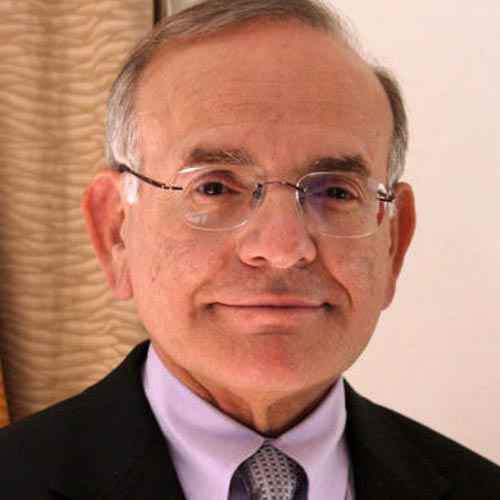

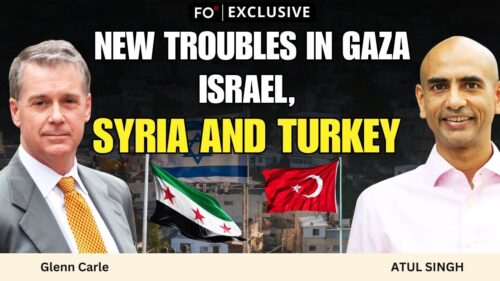
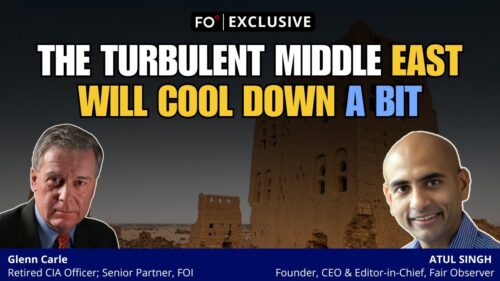

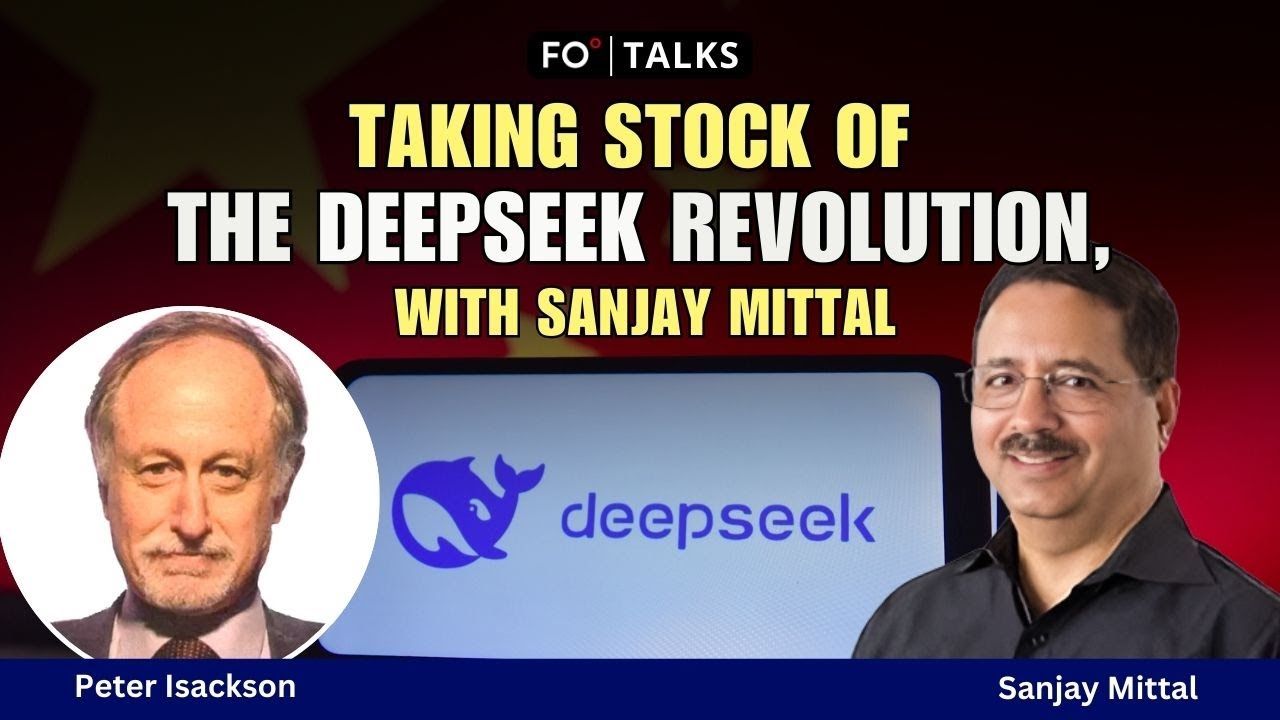

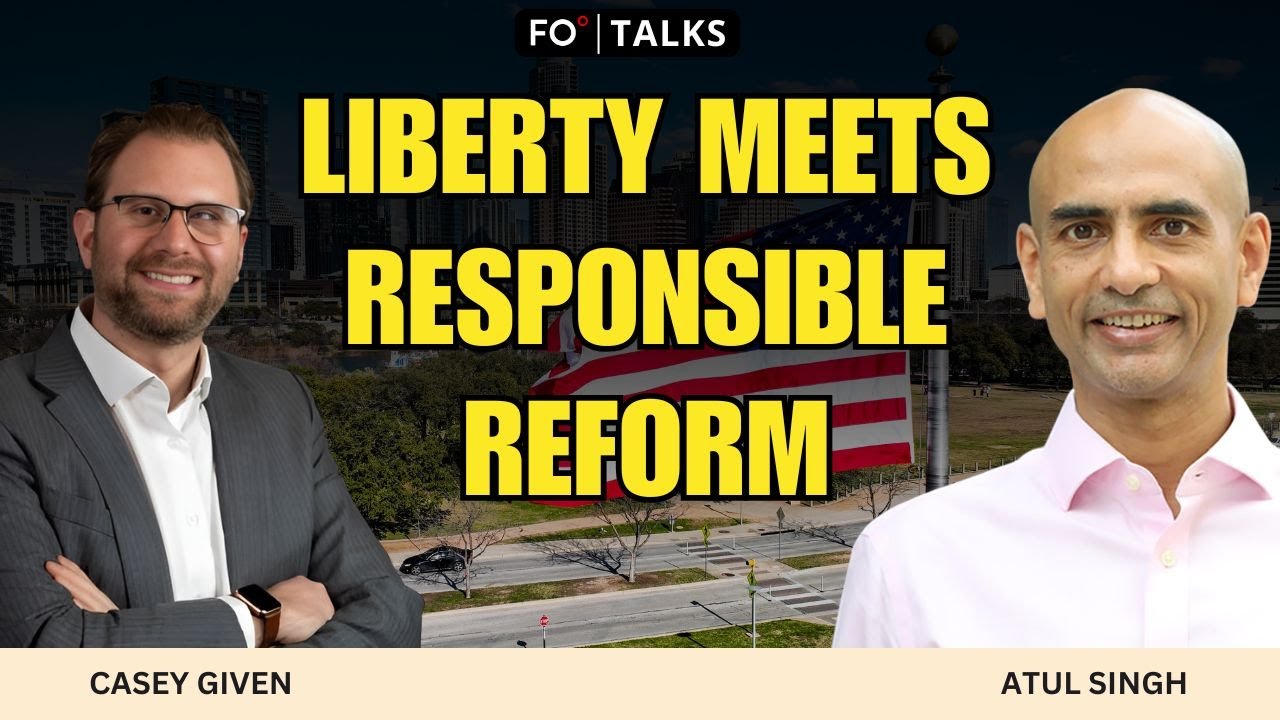

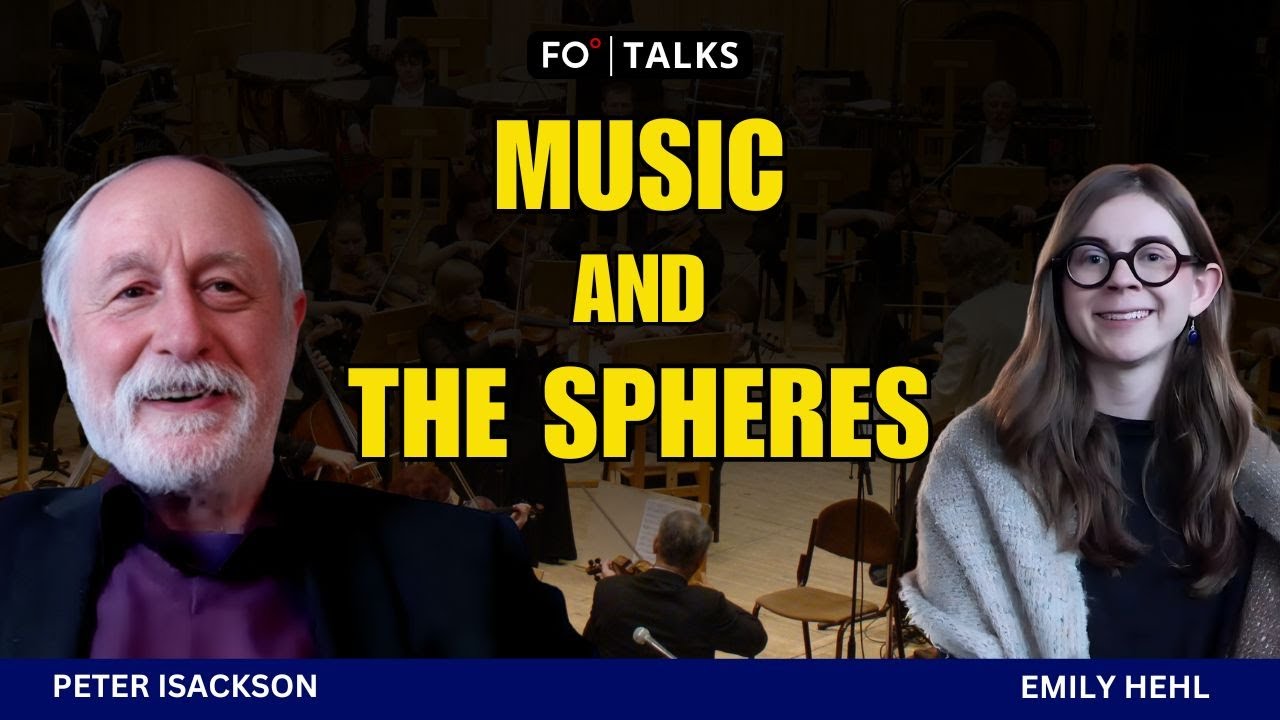



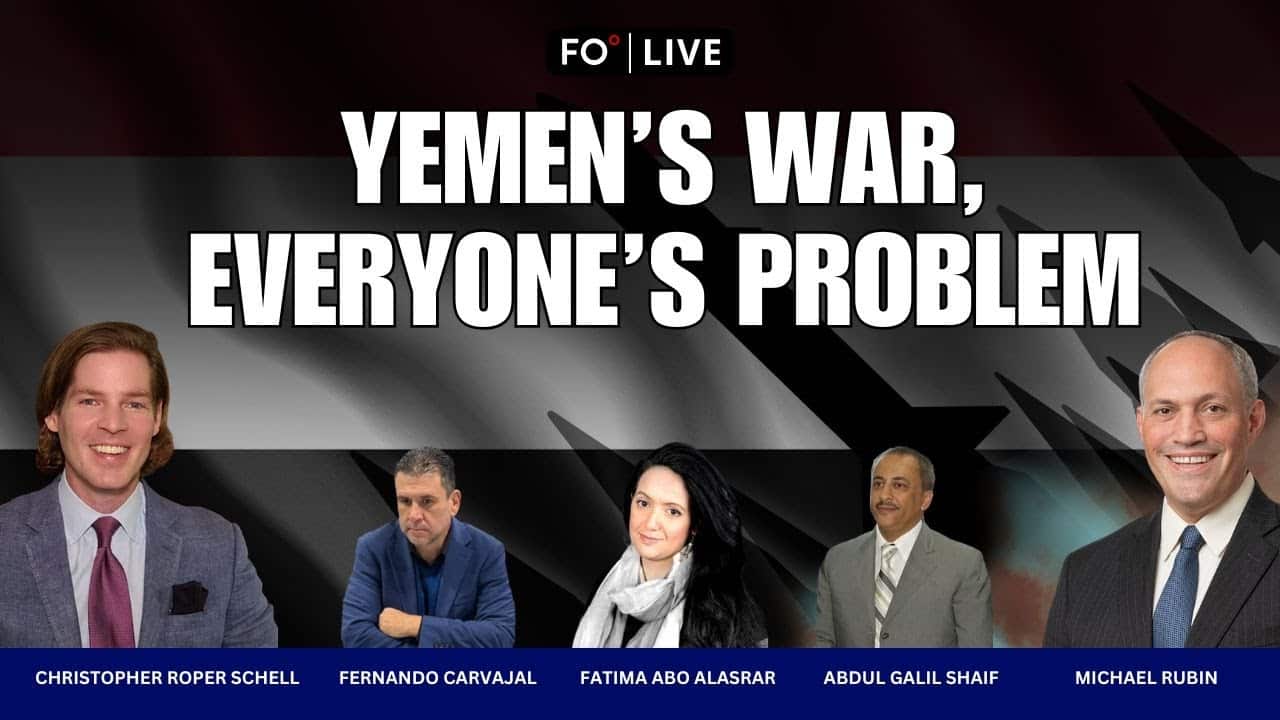

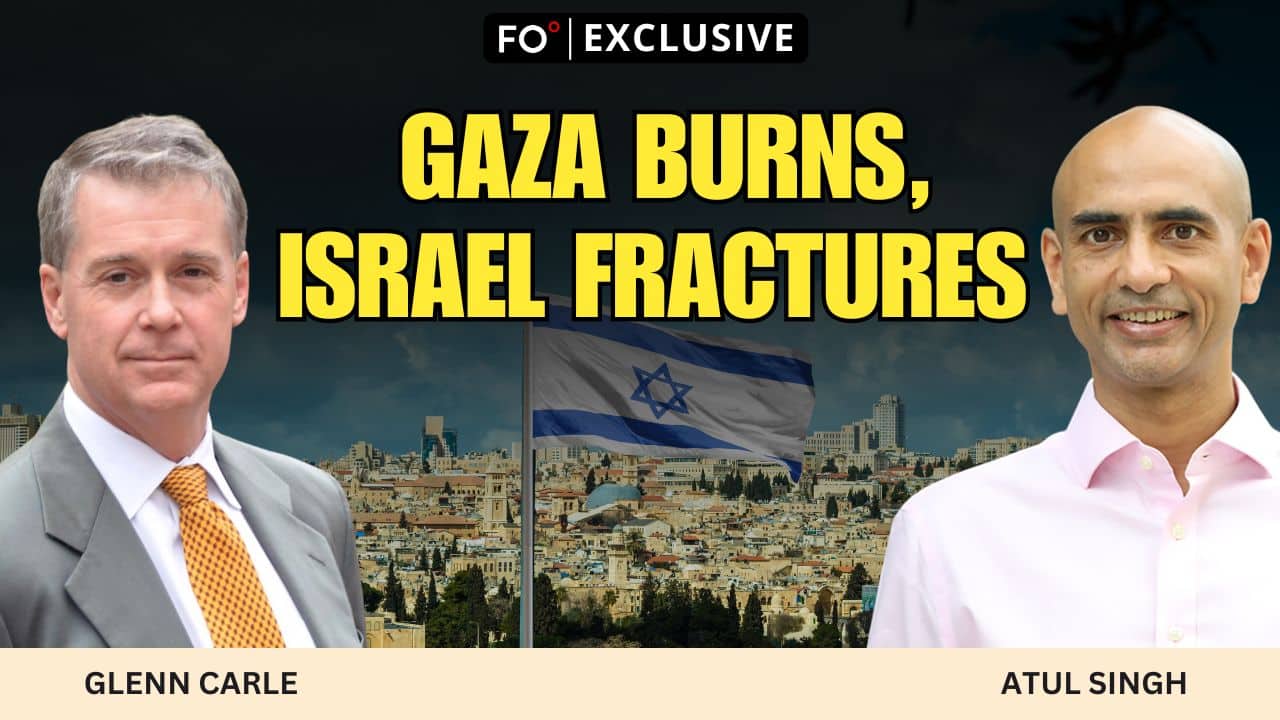


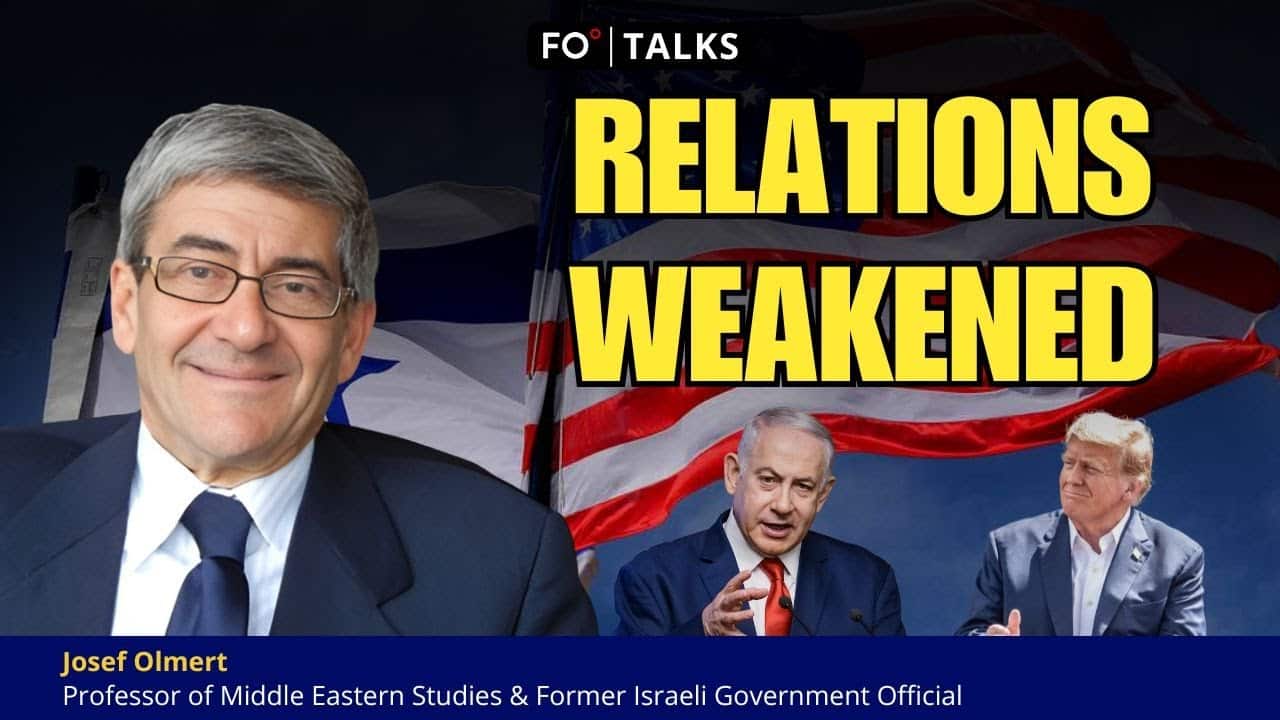



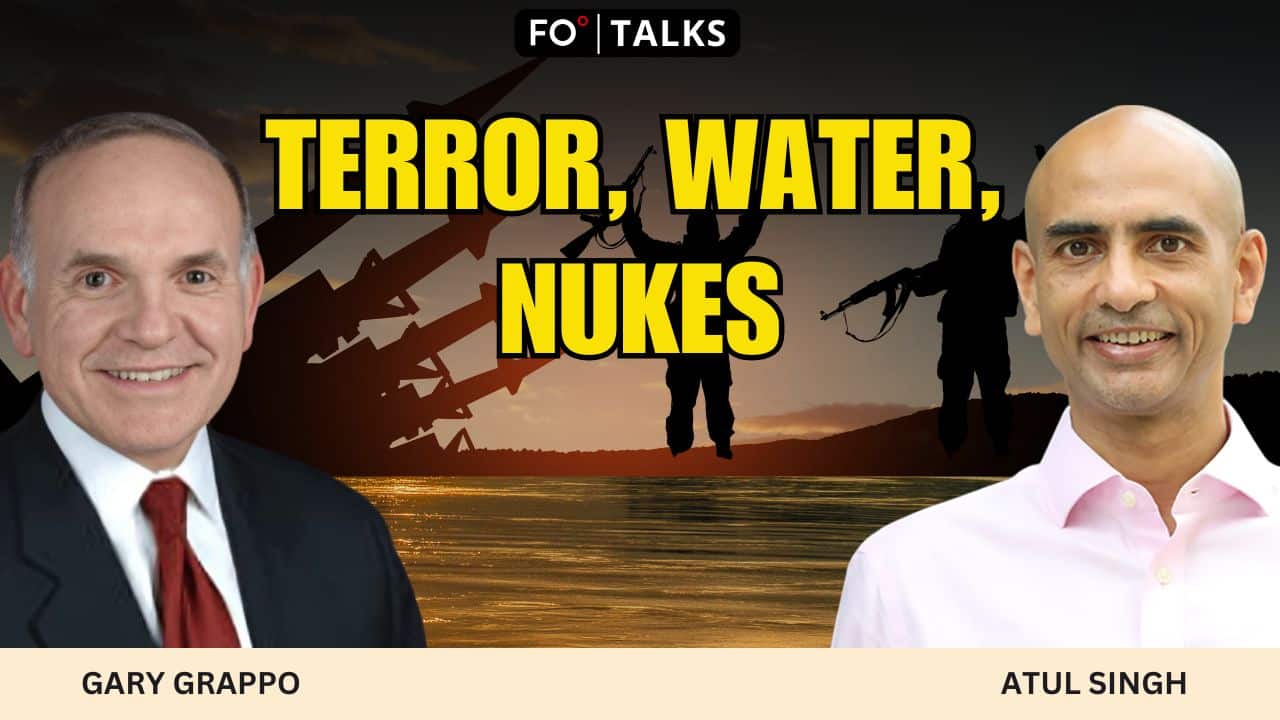

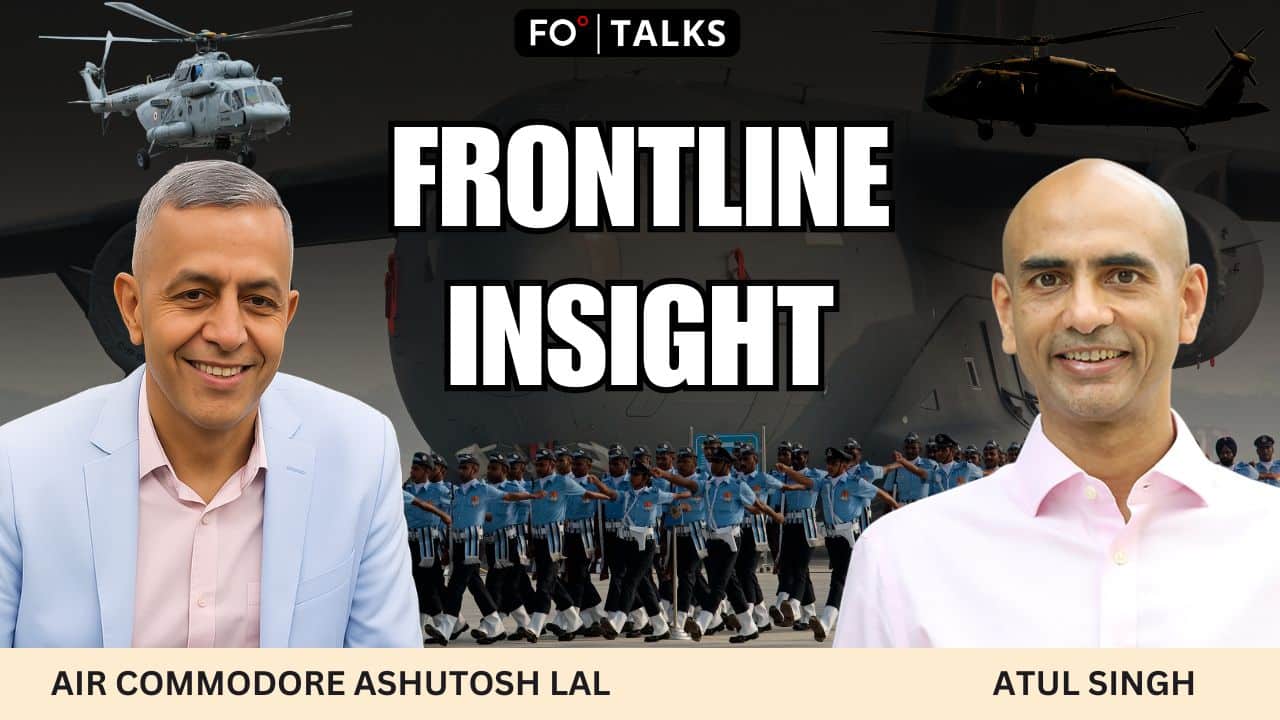

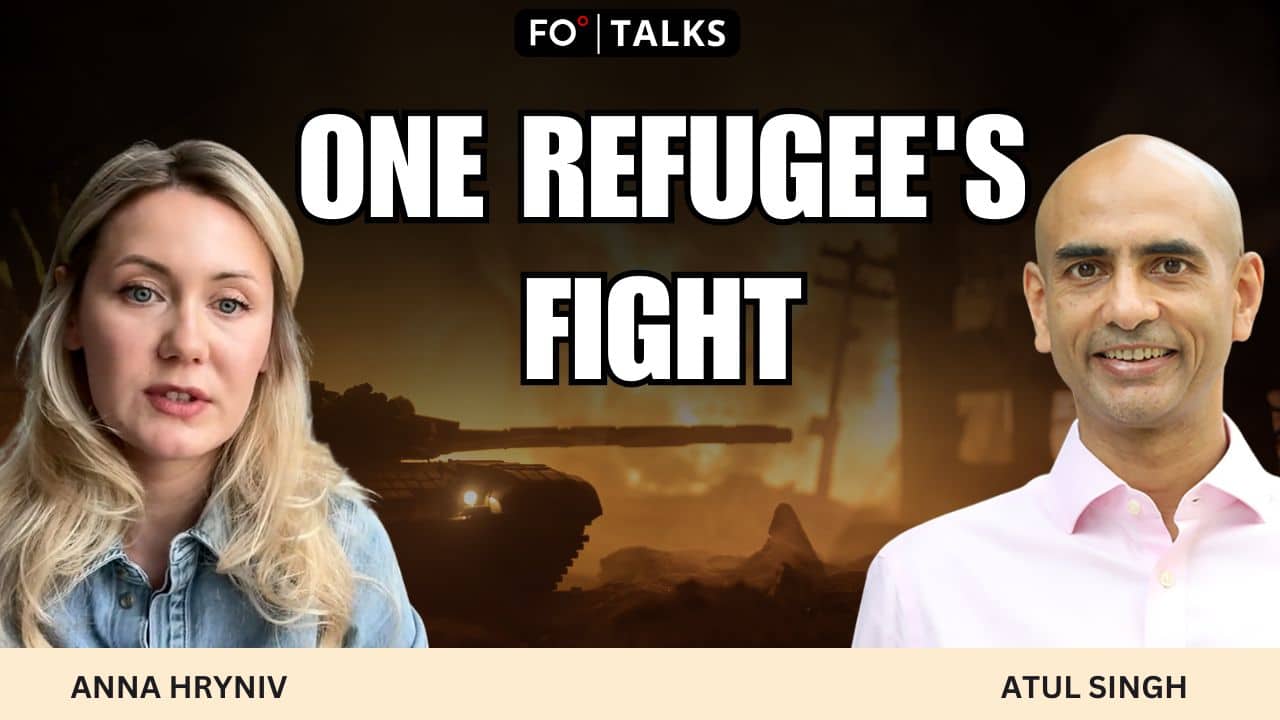

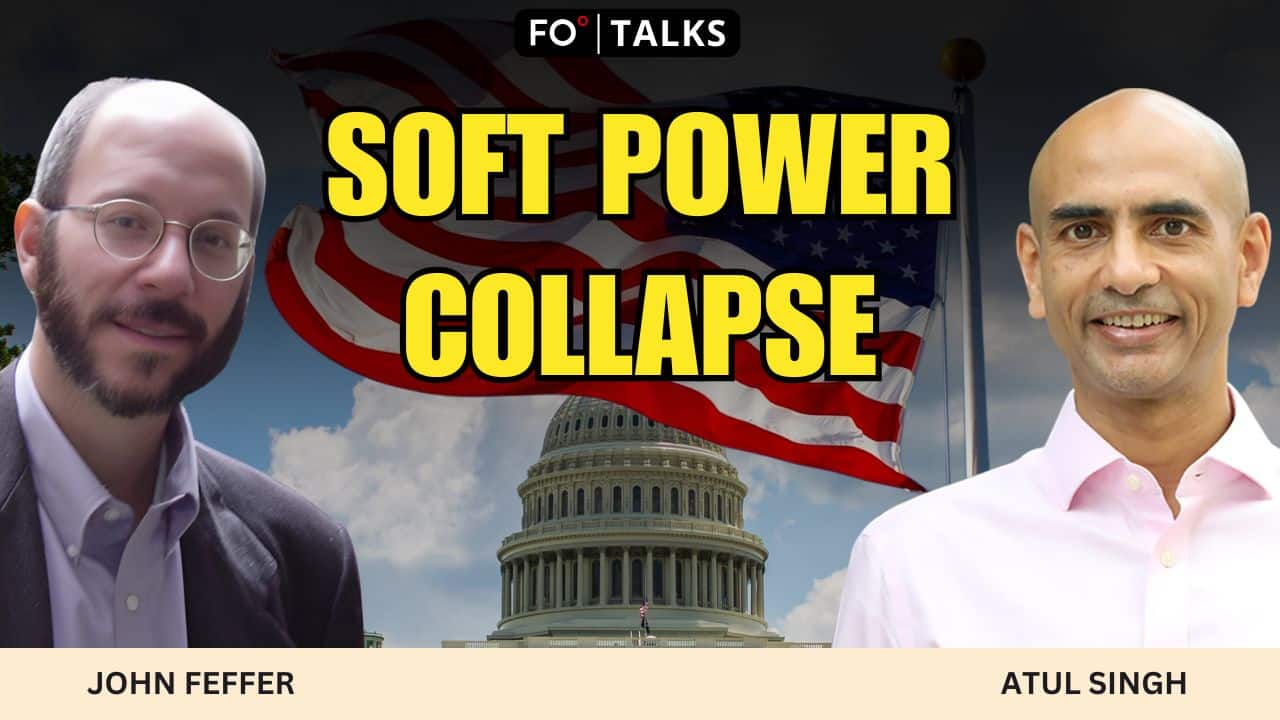

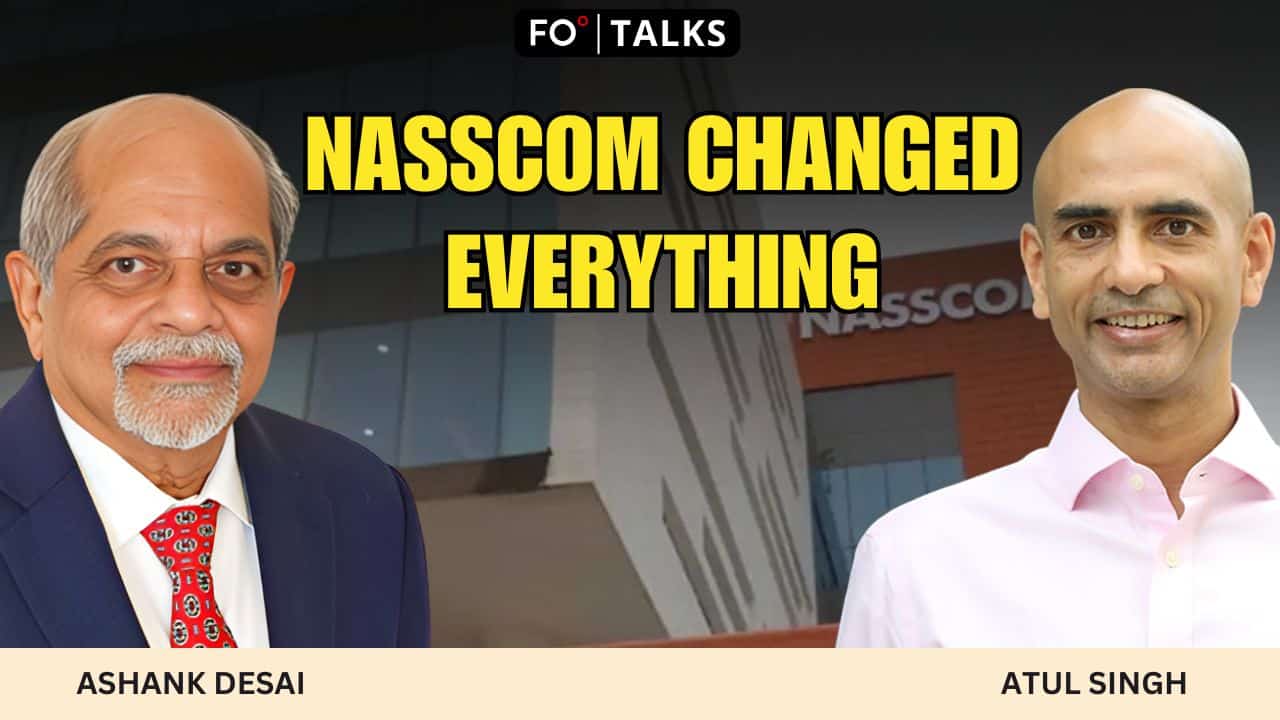

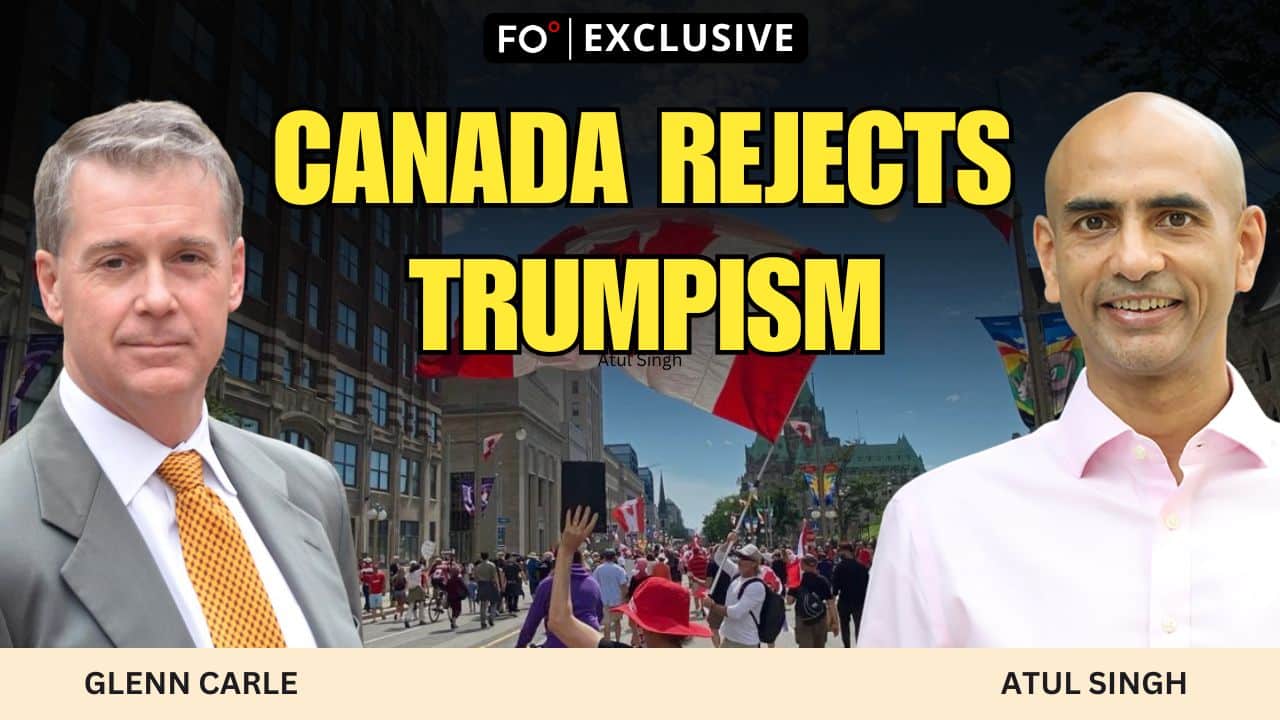






Comment